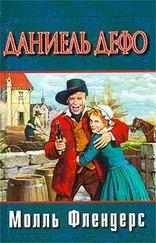Даниэль Дефо - History of the Plague in London
Здесь есть возможность читать онлайн «Даниэль Дефо - History of the Plague in London» весь текст электронной книги совершенно бесплатно (целиком полную версию без сокращений). В некоторых случаях можно слушать аудио, скачать через торрент в формате fb2 и присутствует краткое содержание. Год выпуска: 2014, Издательство: epubBooks Classics, Жанр: Историческая проза, на английском языке. Описание произведения, (предисловие) а так же отзывы посетителей доступны на портале библиотеки ЛибКат.
- Название:History of the Plague in London
- Автор:
- Издательство:epubBooks Classics
- Жанр:
- Год:2014
- ISBN:нет данных
- Рейтинг книги:4 / 5. Голосов: 1
-
Избранное:Добавить в избранное
- Отзывы:
-
Ваша оценка:
- 80
- 1
- 2
- 3
- 4
- 5
History of the Plague in London: краткое содержание, описание и аннотация
Предлагаем к чтению аннотацию, описание, краткое содержание или предисловие (зависит от того, что написал сам автор книги «History of the Plague in London»). Если вы не нашли необходимую информацию о книге — напишите в комментариях, мы постараемся отыскать её.
History of the Plague in London — читать онлайн бесплатно полную книгу (весь текст) целиком
Ниже представлен текст книги, разбитый по страницам. Система сохранения места последней прочитанной страницы, позволяет с удобством читать онлайн бесплатно книгу «History of the Plague in London», без необходимости каждый раз заново искать на чём Вы остановились. Поставьте закладку, и сможете в любой момент перейти на страницу, на которой закончили чтение.
Интервал:
Закладка:
I know that the inhabitants of the towns adjacent to London were much blamed for cruelty to the poor people that ran from the contagion in their distress, and many very severe things were done, as may be seen from what has been said; but I cannot but say also, that where there was room for charity and assistance to the people, without apparent danger to themselves, they were willing enough to help and relieve them. But as every town were indeed judges in their own case, so the poor people who ran abroad in their extremities were often ill used, and driven back again into the town; and this caused infinite exclamations and outcries against the country towns, and made the clamor very popular.
And yet more or less, maugre [228] In spite of, notwithstanding.
all the caution, there was not a town of any note within ten (or, I believe, twenty) miles of the city, but what was more or less infected, and had some [229] Supply "who."
died among them. I have heard the accounts of several, such as they were reckoned up, as follows:—
Enfield 32 Hornsey 58 Newington 17 Tottenham 42 Edmonton 19 Barnet and Hadley 43 St. Albans 121 Watford 45 Uxbridge 117 Hertford 90 Ware 160 Hodsdon 30 Waltham Abbey 23 Epping 26 Deptford 623 Greenwich 631 Eltham and Lusum 85 Croydon 61 Brentwood 70 Rumford 109 Barking about 200 Brandford 432 Kingston 122 Staines 82 Chertsey 18 Windsor 103 cum aliis. [230] "Cum aliis," i.e., with others. Most of the places mentioned in this list are several miles distant from London: for example, Enfield is ten miles northeast; Hadley, over fifty miles northeast; Hertford, twenty miles north; Kingston, ten miles southwest; St. Albans, twenty miles northwest; Uxbridge, fifteen miles west; Windsor, twenty miles west; etc.
Another thing might render the country more strict with respect to the citizens, and especially with respect to the poor, and this was what I hinted at before; namely, that there was a seeming propensity, or a wicked inclination, in those that were infected, to infect others.
There have been great debates among our physicians as to the reason of this. Some will have it to be in the nature of the disease, and that it impresses every one that is seized upon by it with a kind of rage and a hatred against their own kind, as if there were a malignity, not only in the distemper to communicate itself, but in the very nature of man, prompting him with evil will, or an evil eye, that as they say in the case of a mad dog, who, though the gentlest creature before of any of his kind, yet then will fly upon and bite any one that comes next him, and those as soon as any, who have been most observed [231] Kindly regarded.
by him before.
Others placed it to the account of the corruption of human nature, who [232] Which.
cannot bear to see itself more miserable than others of its own species, and has a kind of involuntary wish that all men were as unhappy or in as bad a condition as itself.
Others say it was only a kind of desperation, not knowing or regarding what they did, and consequently unconcerned at the danger or safety, not only of anybody near them, but even of themselves also. And indeed, when men are once come to a condition to abandon themselves, and be unconcerned for the safety or at the danger of themselves, it cannot be so much wondered that they should be careless of the safety of other people.
But I choose to give this grave debate quite a different turn, and answer it or resolve it all by saying that I do not grant the fact. On the contrary, I say that the thing is not really so, but that it was a general complaint raised by the people inhabiting the outlying villages against the citizens, to justify, or at least excuse, those hardships and severities so much talked of, and in which complaints both sides may be said to have injured one another; that is to say, the citizens pressing to be received and harbored in time of distress, and with the plague upon them, complain of the cruelty and injustice of the country people in being refused entrance, and forced back again with their goods and families; and the inhabitants, finding themselves so imposed upon, and the citizens breaking in, as it were, upon them, whether they would or no, complain that when they [233] The citizens.
were infected, they were not only regardless of others, but even willing to infect them: neither of which was really true, that is to say, in the colors they [234] Such statements.
were described in.
It is true there is something to be said for the frequent alarms which were given to the country, of the resolution of the people of London to come out by force, not only for relief, but to plunder and rob; that they ran about the streets with the distemper upon them without any control; and that no care was taken to shut up houses, and confine the sick people from infecting others; whereas, to do the Londoners justice, they never practiced such things, except in such particular cases as I have mentioned above, and such like. On the other hand, everything was managed with so much care, and such excellent order was observed in the whole city and suburbs, by the care of the lord mayor and aldermen, and by the justices of the peace, churchwardens, etc., in the outparts, that London may be a pattern to all the cities in the world for the good government and the excellent order that was everywhere kept, even in the time of the most violent infection, and when the people were in the utmost consternation and distress. But of this I shall speak by itself.
One thing, it is to be observed, was owing principally to the prudence of the magistrates, and ought to be mentioned to their honor; viz., the moderation which they used in the great and difficult work of shutting up houses. It is true, as I have mentioned, that the shutting up of houses was a great subject of discontent, and I may say, indeed, the only subject of discontent among the people at that time; for the confining the sound in the same house with the sick was counted very terrible, and the complaints of people so confined were very grievous: they were heard in the very streets, and they were sometimes such that called for resentment, though oftener for compassion. They had no way to converse with any of their friends but out of their windows, where they would make such piteous lamentations as often moved the hearts of those they talked with, and of others who, passing by, heard their story; and as those complaints oftentimes reproached the severity, and sometimes the insolence, of the watchmen placed at their doors, those watchmen would answer saucily enough, and perhaps be apt to affront the people who were in the street talking to the said families; for which, or for their ill treatment of the families, I think seven or eight of them in several places were killed. I know not whether I should say murdered or not, because I cannot enter into the particular cases. It is true, the watchmen were on their duty, and acting in the post where they were placed by a lawful authority; and killing any public legal officer in the execution of his office is always, in the language of the law, called "murder." But as they were not authorized by the magistrate's instructions, or by the power they acted under, to be injurious or abusive, either to the people who were under their observation or to any that concerned themselves for them, so that, [235] For "so that," substitute "so."
when they did so, they might be said to act themselves, not their office; to act as private persons, not as persons employed; and consequently, if they brought mischief upon themselves by such an undue behavior, that mischief was upon their own heads. And indeed they had so much the hearty curses of the people, whether they deserved it or not, that, whatever befell them, nobody pitied them; and everybody was apt to say they deserved it, whatever it was. Nor do I remember that anybody was ever punished, at least to any considerable degree, for whatever was done to the watchmen that guarded their houses.
Интервал:
Закладка:
Похожие книги на «History of the Plague in London»
Представляем Вашему вниманию похожие книги на «History of the Plague in London» списком для выбора. Мы отобрали схожую по названию и смыслу литературу в надежде предоставить читателям больше вариантов отыскать новые, интересные, ещё непрочитанные произведения.
Обсуждение, отзывы о книге «History of the Plague in London» и просто собственные мнения читателей. Оставьте ваши комментарии, напишите, что Вы думаете о произведении, его смысле или главных героях. Укажите что конкретно понравилось, а что нет, и почему Вы так считаете.












